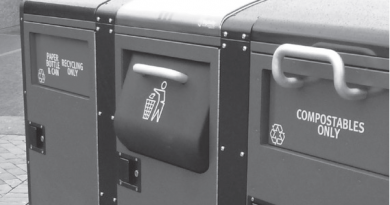The Reemergence of the Oral Tradition
Before written language was established, there was the oral tradition. Nations all over the world, did, and still do, use songs, stories, and sayings to transfer their heritage, values, and beliefs down to younger generations. Ancient Greek works of art were shouted from amphitheaters, not demurely scratched on parchment in candlelit rooms. As time went on, spoken turned to written, the printing press creating an explosion of mass media, accessible across the globe. Only a pocket of niche artists continued the practice of reciting works aloud.
Writers of the 18th, 19th, and 20th centuries might argue that the written word, preserved on paper throughout time, is the most effective form of communication. But based on recent Tacoma literary trends, art may be embracing the undervalued, time-honored tradition of the spoken word again.
Megan Sukys, of the Drunken Telegraph—a local storytelling series meant to “[empower] locals to tell their personal tales of transformation publicly”— might have an explanation as to why, saying “Nothing beats the human voice for conveying tone, emotion, and all the things that written words can’t capture.”
Local members of the literary community have started off 2015 with a bang. From Poet Laureate, to local publications, to an international spoken word artist, Tacoma is bringing vocal back.
Tacoma’s own Poet Laureate, Lucas Smiraldo, recently announced a project called the Laureate Listening Project. Blending the art of contemporary poetry with its ancestral vocal expression, Smiraldo has created an “interactive online audio anthology [where] community members from Tacoma and greater Pierce County reflect on the importance of a particular place in their own life through poetry.”
When asked about the motivation for the project, Smiraldo said, “I realized during my two years as the poet laureate that it was important to capture the oral tradition of poetry as well as the written word…[the Laureate Listening Project] is a little slice of life and it honors a long-standing oral tradition which is a deep part of human history. ”
Coming up on March 20, 2015, Smiraldo will host a free event at B Sharp Coffeehouse—located at 706 Opera Alley—where over 30 Listening Project contributors will read their poetry in front of a live audience, gathering participants in the same room for the first time.
Local literary publication Creative Colloquy (CC) recently teamed up with the Nearsighted Narwhal, a local independent bookstore specializing in “zines, comics, self-published books, CDs, and handmade goods” according to their Twitter page. The event, titled Valentine’s Day Massacre at the Narwhal invited local authors to submit works of crime/mystery short fiction. The twist? All accepted stories were compiled into a full length CD album with music in what TacomaStories.com calls “noir pulp fiction style of the 1930s and 1940s.”
Creative Colloquy founder, Jackie Casella, shares the value of the oral tradition, saying “As a species we’ve been telling stories since our cavemen days so instinctually I think, we yearn to gather around an open flame to be fascinated by a performance. While CC will continue to provide many platforms for our storytellers, the live events are where CC flourishes because of this.”
Located on UWT’s own campus, nationally-recognized spoken word poet Kane Smego made his debut appearance on February 5, 2015. About a dozen people looked on, not quite sure what to expect as Smego took the mic. His passion and poetry left the audience in awe as he attacked tough subjects such as immigration, diversity, sexism, and self-empowerment through lyrical expression. His words created what the Conscious Campus website calls “counter-narratives to mainstream media” through verse, awakening members of the student body to the power of vocal performance.
Smiraldo sums up the needed coherence of the literary community when he says, “Often times the poetry community pits spoken word vs written word and I think that’s a mistake. They are connected and these communities should support and reinforce one another as we carry poetry and other forms of expression forward.”




